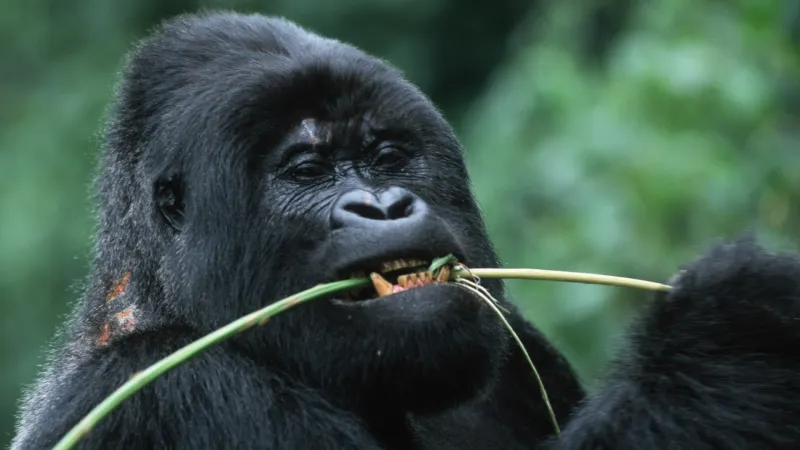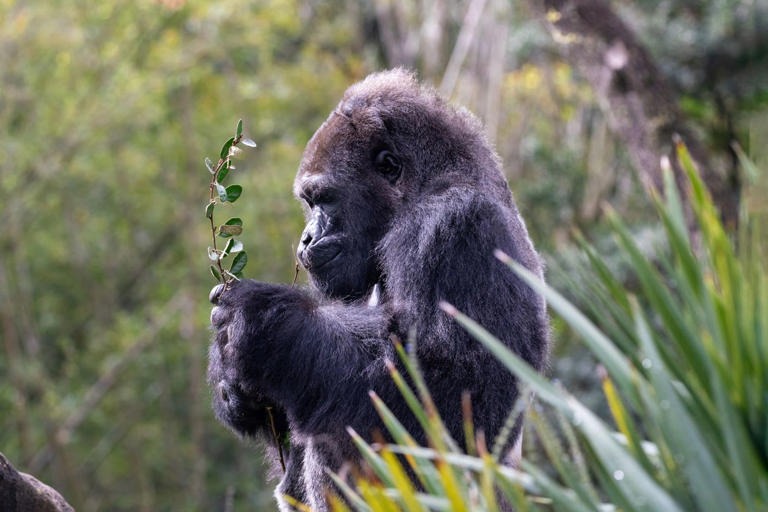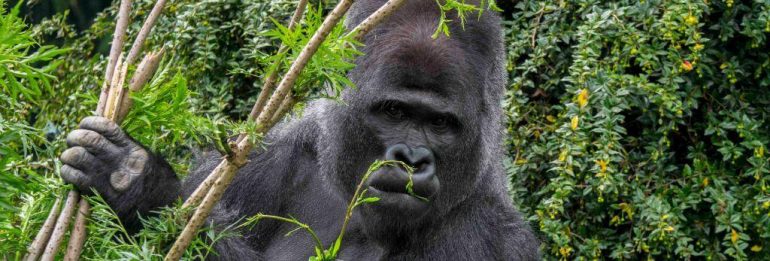By studying tropical plants consumed by wild West African gorillas and used by local healers, scientists from Gabon have identified at least four new plant species with previously undescribed medicinal properties.
Medicinal plants used by gorillas open new horizons in the fight against superbugs
Laboratory studies have shown that these plants contain significant levels of antioxidants and compounds that effectively fight microbes. One of the substances studied has shown its ability to successfully counteract so-called superbugs that are resistant to antibiotics. Great apes are known to often practice self-medication by consuming plants with medicinal properties.
Most recently, the world press reported on an injured orangutan that used a medicinal plant paste to speed up the healing of its injuries. As part of the new study, scientists began by observing the diet of western lowland gorillas living in the Mukalaba-Doudu National Park in Gabon.
After consulting with local healers, the researchers selected four “promising” plant species from the list for deeper analysis: cottonwood (Ceiba pentandra), a subspecies of croton (Myrianthus arboreus), African teak (Milicia excelsa), and fig (Ficus). The bark of these trees, which are traditionally used in folk medicine to treat ailments ranging from infertility to digestive disorders, was found to contain a diverse range of chemical compounds with medicinal properties, including phenols and flavonoids.

All four selected species showed significant antibacterial activity against one strain of superbugs, multidrug-resistant E. coli. The study noted that cottonwood was particularly effective, successfully combating all strains tested.
"This suggests that gorillas have evolved to eat plants that benefit them, and highlights significant gaps in our understanding of the Central African rainforest," said anthropology professor Joanna Setchell of Durham University in the UK, who worked on the study along with a team of scientists from Gabon.
Gabon's vast, largely unexplored rainforests are home to rare species of wildlife such as elephants, gorillas and chimpanzees, as well as numerous plants, many of which remain unknown to science.
The population of western lowland gorillas in the wild has rapidly declined due to poaching and the spread of various diseases. These primates are now classified by the International Union for Conservation of Nature as a species on the verge of extinction and are included in the Red List.
Wisdom and Sensitivity: The Secrets of Gorilla Intelligence in the Wild
Gorillas are among the most intelligent and sensitive creatures on the planet. These great apes have a unique capacity for complex social interactions and have deep emotional connections with the members of their troop around them. Their behavior shows many signs of advanced intelligence and emotional awareness, making them particularly interesting to study.
One of the most striking examples of gorilla intelligence is their ability to use tools to solve various problems. In the wild, they may use sticks, leaves, or rocks to obtain food or improve the comfort of their surroundings. Gorillas understand not only how to find a solution to a problem, but also how to pass this knowledge on to their fellows, which indicates that they have a culture.

Gorillas' sensitivity is also evident in their care for members of their group. They form strong social bonds by expressing support, comfort, and concern for the weak or injured. Gorillas often console each other, displaying behavior similar to human empathy. Females carefully care for their young, teaching them survival skills, and can show genuine mourning when a member of their kin is lost.
The emotional development of these animals allows them to experience a wide range of feelings, such as joy, sadness, and even anger. They can recognize threats, react to changes in the environment, and make decisions based on past experience. Thanks to these qualities, gorillas are able to effectively survive in difficult conditions in the wild.
Gorillas continue to amaze scientists with their intellectual and emotional abilities. Research shows that they are self-aware and capable of social learning, which brings them closer to humans and highlights their important role in tropical forest ecosystems.

